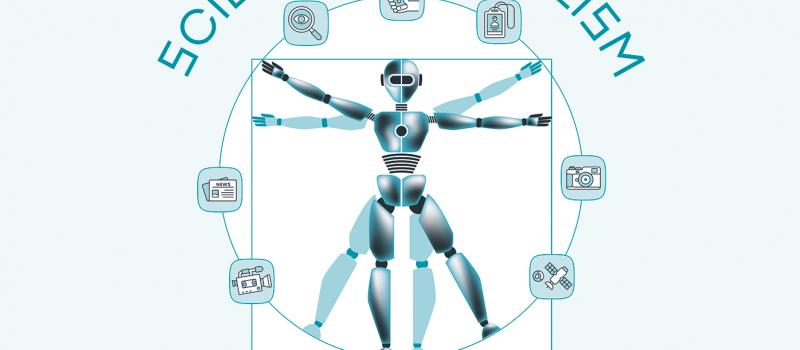
BRUSSELS - Journalismfund.eu vzw has launched a pilot grant programme for journalism about science and its impact on society. The Vice-Minister-President of the Flemish Government and Flemish Minister of Science Policy, Hilde Crevits, provides €46,000 in support.
The importance of science and technology is growing steadily. This is demonstrated by the coverage of Covid-19, the issue of pandemic vaccination, but also other pressing topics such as global warming. We feel the need for sound science journalism every day. Unfortunately, pseudoscience finds its way to the general public faster because it is fun to read, because it generates clicks and because algorithms within social networks 'push' it six times more than news from professional journalists. These kinds of unchecked articles undermine the credibility of our media and do nothing to help our citizens.
Flemish Minister of Science Policy Hilde Crevits: "Journalists play an essential role in out society and democracy. They analyse, interpret and critically examine important social trends. Since science is such an important factor in our society, especially during this health crisis, it is important that we give journalists the time and resources to train in science journalism. That is why I am very pleased that we can support this pilot project and thus give journalists the opportunity to learn about science journalism."
No tradition
Belgium doesn't really have a tradition of science journalism. There is also no such thing as an association of science journalists, which is the case in the Netherlands or Germany. Nevertheless, Flanders is very committed to science and science popularisation is an important element in creating support among a broad public. After all, a lot of public money goes to scientific research. Publishing extensively on this topic involves the public more in the discussion and ensures that citizens are better informed.
Specialisation
Science journalism occupies a special place within journalism. It requires a specific approach and method. A thorough journalistic article on a scientific item takes a lot of time to write. The journalist needs to be meticulous and critical in order to grasp the nuances of science and translate them in a clear way to make them understandable to a large audience. This requires additional expertise, practical skills and time that day-to-day reporters often lack. Especially by giving journalists the space to gain experience in this, we can stimulate science journalism.
That is why Journalismfund.eu vzw offers grants to journalists who want to focus on a scientific topic for a longer period of time. This should motivate journalists to engage in science journalism. Journalismfund.eu vzw hopes that, as a result, more qualitative, in-depth articles on science will appear in the Dutch-language press in Belgium and not in the least journalists will be able to further develop their competences. The result will be that the public will be better informed on scientific topics.
Journalismfund.eu is the ideal partner
Journalismfund.eu is an independent buffer between financial donors and journalism. After all, giving financial support to journalism is delicate. Journalismfund.eu is an independent organisation set up by citizens, with the aim of facilitating well-informed debate as a prerequisite for a healthy democracy. Since 1998, it has facilitated more than 1,100 journalistic investigations and supported almost 2,000 journalists in Europe, Africa and Asia. In Flanders, Journalismfund.eu is mainly known for the projects it makes possible through the Pascal Decroos Fund.
Journalismfund.eu invariably acts as a firewall between the financial donor (in this case, the Flemish government) on the one hand, and the journalists on the other. The donor only sets general objectives, but is completely excluded from the process of awarding grants to individual projects. This pilot project comes under the wings of the Fonds Pascal Decroos work grant programme of Journalismfund.eu. The programme works with an independent and anonymous jury, in order to prevent any possible influence and to safeguard the confidentiality of the investigations. The names of the jury members are only disclosed after their (usually four-year) mandate has expired.
How to apply?
- Deadline: Friday 26 February 2021 - 12 noon (CET)
- More info and applications via our online application platform
- Questions? Need help?: Contact us via science [at] journalismfund.eu (science[at]journalismfund[dot]eu)






